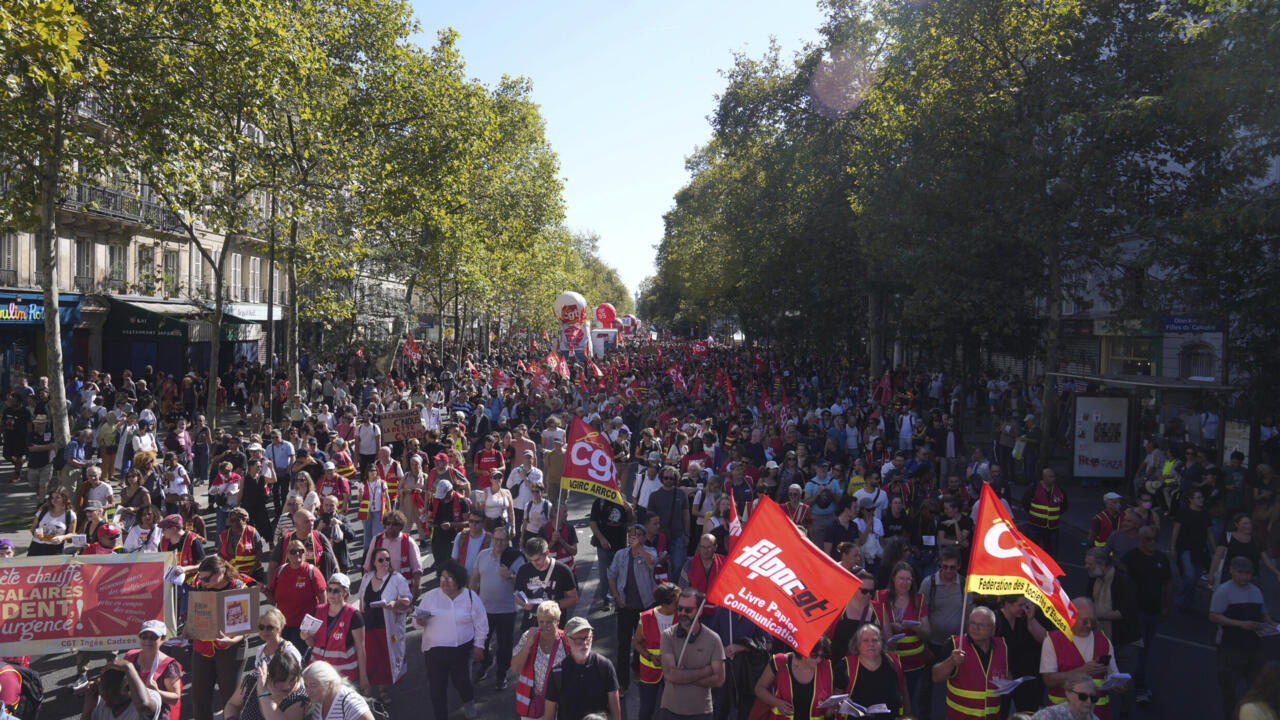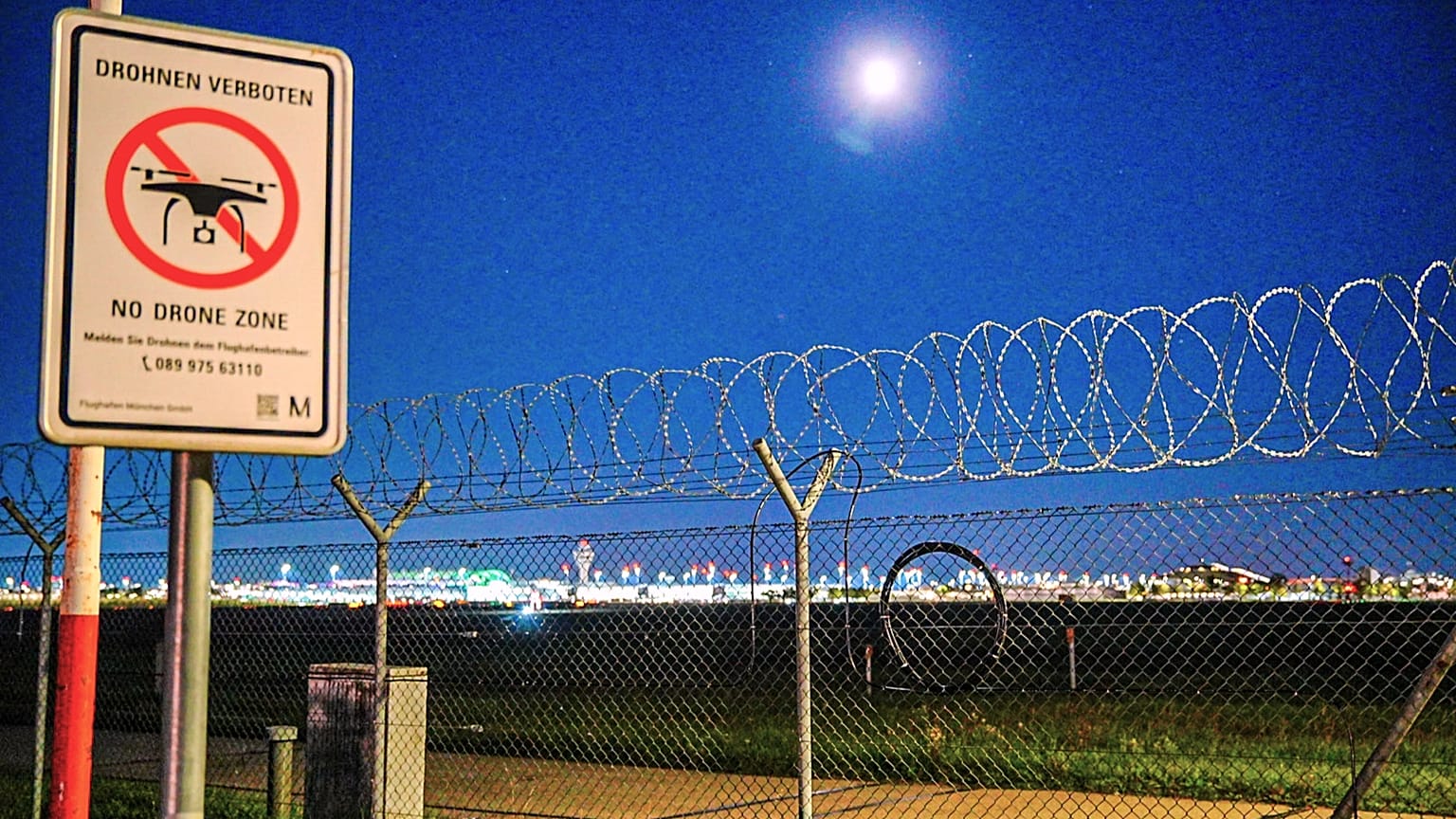Across France, widespread strikes organized by major unions are sending a strong message against government austerity measures, placing significant pressure on President Emmanuel Macron’s administration. Workers from multiple sectors have taken to the streets, highlighting grievances over pensions, wages, and public spending cuts.
The protests reflect deep-seated frustration with policies perceived to disproportionately affect ordinary citizens while safeguarding economic interests and state finances. Public sector employees, transport workers, teachers, and healthcare professionals have led demonstrations in key cities, including Paris, Lyon, Marseille, and Bordeaux, signaling broad support for the unions’ demands. These strikes coincide with heightened debates about economic inequality, labor rights, and social justice in France.
The origins of the turmoil
The recent wave of industrial action stems from government plans to implement austerity measures aimed at reducing public debt and controlling state spending. Proposed reforms to pension systems, public sector benefits, and social services have sparked widespread discontent. Many unions argue that these measures threaten livelihoods, disproportionately impact lower-income workers, and undermine social protections that have long been hallmarks of the French welfare system.
Economic pressures, including inflation and rising living costs, have further intensified public dissatisfaction. Workers feel that austerity policies exacerbate financial strain, creating an environment where strikes and protests are seen as necessary tools to defend economic security. Analysts note that France’s history of labor activism plays a central role in shaping public responses, with unions leveraging strikes as a powerful means of negotiation and social influence.
The administration under Macron has stressed the importance of being fiscally responsible, claiming that changes are crucial for maintaining long-term economic stability. On the other hand, detractors argue that austerity measures may intensify social disparities and diminish public confidence in governmental bodies. The struggle between fiscal caution and social fairness has resulted in a complicated policy environment, making it difficult to reach a consensus both politically and economically.
Extent and consequences of the strikes
The strikes have affected a wide range of services, from public transportation and education to healthcare and municipal operations. Airports, rail networks, and urban transit systems have experienced delays and closures, while hospitals report disruptions in routine care. Schools have faced closures or limited operations, leaving families scrambling for alternatives, and public offices have seen reduced availability, affecting administrative processes.
Beyond logistical disruptions, the strikes carry symbolic weight, demonstrating collective resolve and the unions’ ability to mobilize large segments of the workforce. Protest marches, public speeches, and media campaigns amplify the message, attracting international attention and highlighting domestic dissatisfaction with government policies. Economists warn that prolonged industrial action may have short-term economic consequences, yet unions argue that these measures are necessary to prompt meaningful policy reconsideration.
Political consequences and Macron’s reaction
President Macron must carefully manage the increasing protests. His government needs to address public concerns, engage in discussions with unions, and consider wider economic goals while preserving political authority. If grievances are not addressed, it may weaken public trust, whereas offering compromises could attract criticism from economic consultants and fiscal conservatives who support stringent financial discipline.
Macron’s earlier experiences facing public demonstrations, like the Yellow Vest protests, shed light on his strategy. The administration has traditionally employed a mix of dialogue and targeted enforcement actions, attempting to tackle certain issues while not completely giving up on wider reform goals. Within this framework, the present strikes serve as both a challenge in labor relations and an assessment of political leadership and the capacity to balance economic and social priorities.
Union leaders emphasize that the protests are about more than immediate policy adjustments; they frame the movement as a defense of social solidarity and long-standing rights. The broader message resonates with citizens who perceive economic inequality as a persistent issue, highlighting the intersection of labor advocacy, civic engagement, and public policy. Macron’s handling of the situation may influence both domestic opinion and France’s standing in the European context, where economic stability and social cohesion are closely monitored.
Wider social and economic background
The strikes occur against a backdrop of global economic uncertainty, rising inflation, and public concerns about the sustainability of social safety nets. Citizens express frustration over stagnant wages, increasing costs of living, and perceived government inaction to alleviate these pressures. In this environment, labor mobilization becomes a crucial mechanism for voicing discontent and seeking policy change.
Economic analysts note that while austerity may strengthen government finances, it can also suppress domestic consumption, weaken morale among public sector employees, and fuel social unrest. Strikes and public demonstrations serve as both a negotiating tool and a means of signaling societal priorities, underscoring the complex relationship between fiscal policy and public sentiment. In France, where labor movements have historically shaped legislation and social norms, union action continues to play a pivotal role in shaping policy debates.
The current mobilization also illustrates generational and regional dynamics. Young workers and students are increasingly participating alongside established unions, bringing renewed energy and visibility to the protests. Regional disparities, including differences in cost of living, employment opportunities, and public service availability, further influence the scope and intensity of demonstrations. These factors collectively amplify the urgency of the strikes and the stakes for the Macron administration.
A challenging period of transition
The result of these strikes will probably hinge on current discussions, the government’s readiness to amend policies, and the unions’ capacity to keep up the pressure. Macron’s government confronts the task of aligning financial reforms with societal expectations, making sure that actions are viable while also addressing public needs. Reaching agreements, effective communication, and prompt actions will be crucial in handling both the immediate disturbances and the future effects on social unity.
For observers and citizens alike, the unfolding events highlight the enduring power of collective action in shaping policy and influencing governance. As France navigates this period of unrest, the interplay between economic strategy, labor rights, and public sentiment will continue to define both the political landscape and the broader discourse on social justice and fiscal responsibility. The resolution of these protests will provide valuable insights into the evolving dynamics of labor relations, government policy, and citizen engagement in a rapidly changing economic environment.





